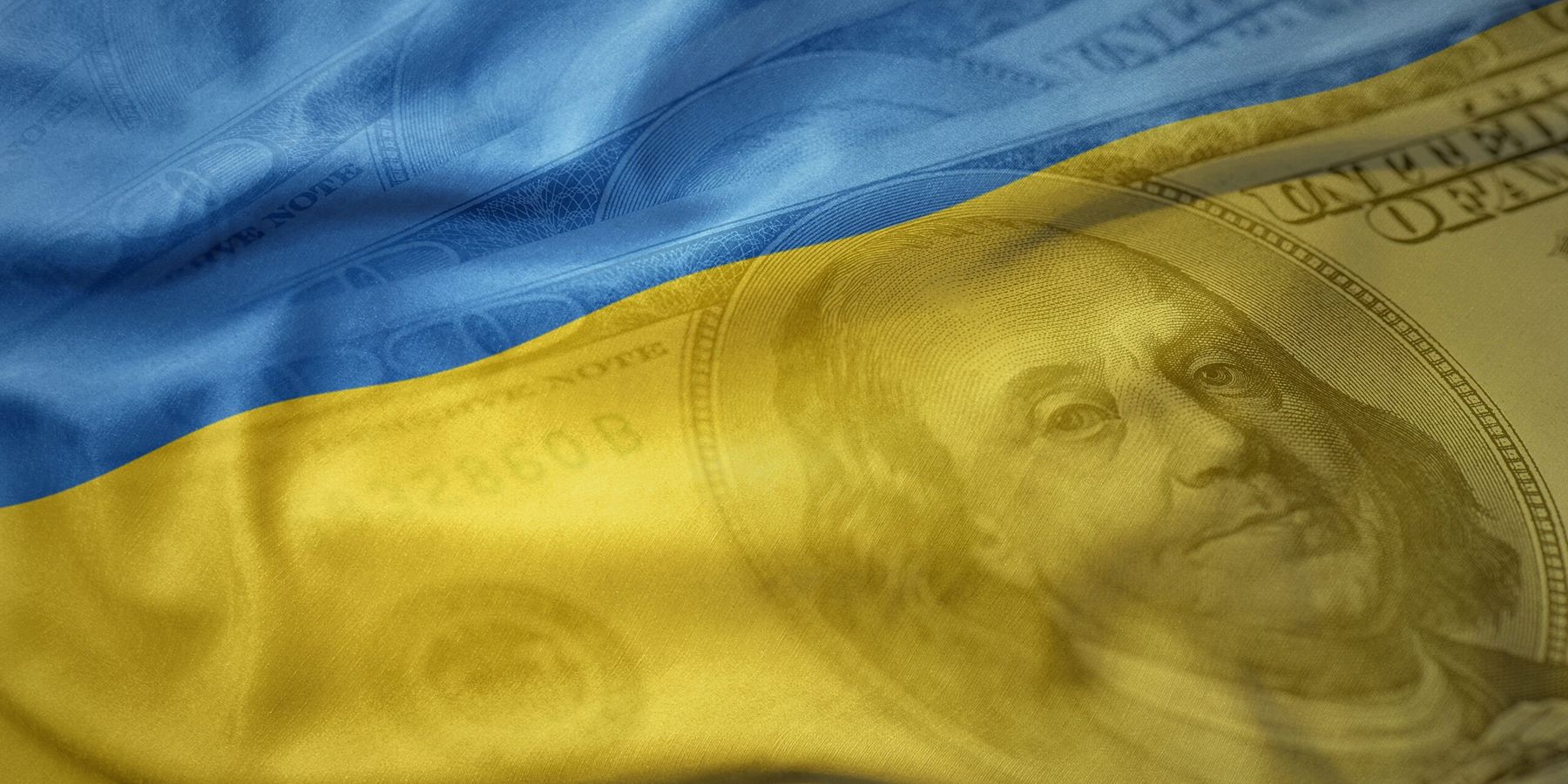Prior to the war in Ukraine, Russian and Ukrainian interests had already been deadlocked in a heated battle.
But this clash wasn’t being waged on the streets of Kyiv, it was being fought on K Street in Washington D.C. The combatants donned suits, not camouflage. Their targets weren’t hardened military units, they were U.S. policymakers in Congress and the executive branch. Their goal wasn’t total victory, it was to win hearts, minds, and, above all, votes for their cause. This was the lobbying battle before the Ukraine war.
As I documented in a Quincy Institute brief, this David vs. Goliath style battle between a small, relatively low-funded, but remarkably zealous Ukrainian lobby had largely been thwarted by a multi-million dollar lobbying and PR campaign by Russian interests. But when Russian President Vladimir Putin made the disastrous decision to invade Ukraine two years ago, this Russian influence advantage in D.C. quickly evaporated. Within a week of the war's onset, U.S. sanctions effectively decimated Russia’s influence in Washington, forcing a number of top lobbying and public relations firms to sever ties with their Russian clients.
Since then the Ukraine lobby has been largely unopposed in its efforts to steer U.S. foreign policies related to the war. The Ukraine lobby has helped pave the way for more than $100 billion in U.S. assistance to Ukraine and meticulously crafted the media narrative to maintain U.S. public support for Ukraine’s war effort.
The Ukraine Lobby Since the War Began
In the two years since the war in Ukraine began, 46 different firms or individuals have been registered under FARA to represent Ukrainian interests. This includes lobbying heavyweights like BGR Government Affairs, Hogan Lovells, and Hill & Knowlton, as well as international public relations firms like Qorvis Communications. In total, these firms have received nearly $10.92 million from Ukrainian clients since 2022, according to FARA data compiled by OpenSecrets.
Just as in the year before the war — when FARA registrants reported conducting 13,541 political activities on behalf of their Ukrainian clients — the Ukraine lobby has been working feverishly since the war began. A Quincy Institute analysis of FARA records found that, since the war began, Ukrainian interests have reported doing more than 12,000 political activities on behalf of Ukrainian interests, primarily contacting Congress, the executive branch, and media outlets.
By far the busiest firm working on behalf of Ukrainian interests has been Yorktown Solutions, which has represented the Federation of Employers of the Oil and Gas Industry of Ukraine, the Civil Movement For a Just Ukraine, and the Primary Trade Union Organization of State Enterprise National Nuclear Energy Generating Company, better known as "Energoatom."
For just one of these clients — the Federation of Employers of the Oil and Gas Industry — Yorktown has reported doing 8,296 political activities since the war began. To put that remarkable workload in perspective, it equates to an average of more than 11 emails, phone calls, and meetings completed every day on behalf of just one client. No other foreign client registered under FARA has had more work done on their behalf in the past two years, according to a Quincy Institute analysis of FARA records.
Since the war began, Yorktown hasn’t hidden the fact that one of the primary objectives behind all this work is to increase U.S. military assistance to Ukraine. “We’ve gone from energy security to security,” Daniel Vajdich, President of Yorktown Solutions, told Politico less than a month after the war began, explaining the firm's shift away from lobbying related to the Nordstream 2 pipeline and towards acquiring U.S. military assistance for Ukraine.
Vajdich added that, “It is 24 hours, even when we’re sleeping the phone is on, and the phone is going off, and there are phone calls from Kyiv, and there are phone calls from others here in Washington both in and out of government … We speak to the administration. We speak to Capitol Hill. We certainly speak to media as well.”
In addition to its Ukrainian clients, Yorktown has also been working feverishly for the Centre for a European Future, reporting more than 4,000 political activities on behalf of the Belgium based non-profit whose objectives revolve heavily around Ukraine and include, “rebuilding Ukraine,” “joining NATO,” and “securing compensation for the war.”
The Pro-Bono Push for Ukraine
At just under $11 million in reported FARA spending by Ukrainian clients since the war began, the Ukraine lobby isn’t funded at the level of perennial influence powerhouses in Washington, like Saudi Arabia, whose lobbying and public relations firms have received more than $70 million from the Kingdom since 2022, according to OpenSecrets.
But, the actual dollar amount of spending on lobbying, public relations and the other influence efforts done on behalf of Ukrainian interests is deceptive, as many individuals, and even some of the most prominent lobbying firms in D.C., have been working for Ukraine pro-bono. In fact, of the 46 different firms and individuals that have been registered under FARA to represent Ukrainian clients, 29 have done the work for free.
Working for Ukraine pro-bono became somewhat trendy in the Washington influence industry shortly after the war began. Many of the firms registered under FARA to represent Ukrainian interests for free, however, appear to have done little work on behalf of Ukrainian interests. Some reported just a handful of contacts with congressional offices on behalf of Ukraine. Another reported a “one day pro bono effort” for a Ukrainian Parliamentary Delegation to the U.S. In one infamous case, a firm registered under FARA claiming to be working pro-bono for the Ukrainian ambassador to the United Nations, only to deregister just days later after the ambassador publicly explained that he was not actually working with the firm.
On the other hand, a number of lobbying and PR firms have done a considerable amount of work for Ukrainian interests at no charge to their clients. A Quincy Institute analysis of FARA records found that Plus Communications tops this list with nearly 3,000 political activities reported in its pro-bono work for the Ukrainian PR Army, a non-profit organization that purports to help, “global media tell the accurate story of this war through the perspectives of Ukrainian experts, authorities, and witnesses.”
Plus Communications’ work involved pitching interviews with prominent Ukrainian officials to seemingly every mainstream U.S. media outlet, including Fox News, The Washington Post, and NPR.
Another major pro-bono endeavor is being run on behalf of the Ministry of Culture and Informational Policy of Ukraine, specifically in relation to the ministry’s “Advantage Ukraine Initiative,” which seeks to attract international investment in Ukrainian industries, with the top choice being the defense industry.
Several firms are registered under FARA to support this pro-bono initiative, including Hill & Knowlton Strategies, Ogilvy Group, and Group M. The latter has reported nearly 300 emails to major media outlets, most of which were in reference to “ad materials” for Advantage Ukraine. The firm’s FARA filings show these ads include slogans like, “Davos is over. The opportunities in Ukraine have just begun,” and “Imagine an investment where you get applauded by shareholders AND the public?”
Group M’s collaborator on the Advantage Ukraine Initiative, Ogilvy Group, is also one of several firms that have been working pro-bono for Ukraine while taking money from firms that are profiting from the Ukraine war. As Eli Clifton and I previously reported for Responsible Statecraft, Hogan Lovells, BGR Government Affairs, Mercury Public Affairs, Navigators Global, and Ogilvy Group have all done pro-bono work for Ukraine interests while also lobbying on behalf of weapons makers that could profit from the war.
The Ukraine Lobby Today
While the size of the Ukraine lobby has decreased since the early months of the war, 18 firms are still registered under FARA to represent Ukrainian interests. Most of them are still doing the work pro-bono, and many of them remain intent on shaping U.S. foreign policy to Ukraine’s favor. More so than at any time since the war began though, they’re having to fend off an American public which increasingly believes the U.S. is providing too much aid to Ukraine. How this tension pans out remains to be seen, but there is little doubt that the Ukraine lobby has all the ammunition it needs to continue winning the lobbying battle in Washington.- Ukraine far outperforms Russia — on the lobbying front, in Washington ›
- Army of Ukraine lobbyists behind unprecedented Washington blitz ›
















